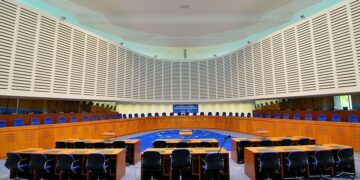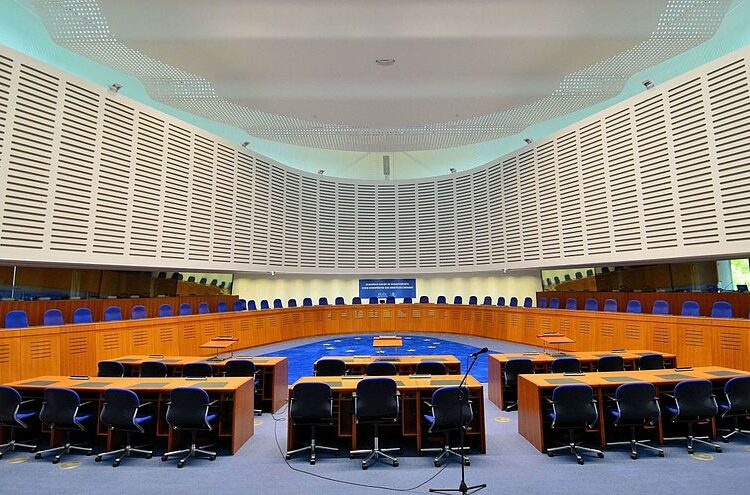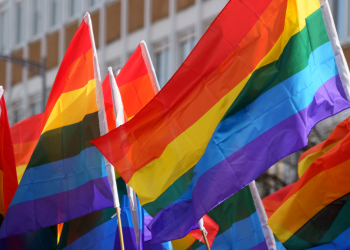Last updated on April 30th, 2020 at 01:25 pm
The European Court of Human Rights (ECHR) was established in Strasbourg in 1959 to ensure respect for fundamental human rights and liberties. In Europe it is the both the arbiter and judge of human rights. By definition, it ought to be a pristine institution, above all suspicion, free from any influence or bias.
But what if the ECHR were held hostage by certain special interests? Europeans would no longer have confidence in the Court of Europe would no longer have the court of last ins defender of their fundamental liberties. Instead, special and selective “rights” founded would be sold to the highest bidders and fundamental equality in rights would be sacrificed on the altar of partisan interests.
This bias is precisely what is indicated in a devastating new report from the European Centre for Law & Justice (ECLJ) in Strasbourg. Entitled Les ONG et les juges de la CEDH, 2009-2019 [“NGOs and the Judges of the ECHR, 2009 – 2019“] the report is also available in English and Spanish. ECLJ is an international organization dedicated to the promotion and protection of human rights and religious freedom throughout the world. ECLJ has held special Consultative Status before the Economic and Social Council of the United Nations since 2007. The report in question was prepared by Mr. Grégor Puppinck, PhD, Director of the ECLJ, who also takes part in the Committee of Experts on the Reform of the ECHR, along with Delphine Loiseau, Associate Research fellow at ECLJ. Its pages present a sensational and staggering case of conflicts of interest at the ECHR.
The meticulous six-month investigation that produced the report considers the decade between 2009-2019 and the 100 permanent judges of the Court. Among these judges, it identifies 22—almost a quarter of the assembly—who have links to seven NGOs. In fact, before becoming judges of the ECHR, these individuals were collaborators and sometimes even managers of the NGOs in question. The organizations, in alphabetical order, to which the judges are tied are as follow: A.I.R.E. Centre (Center for Individual Rights in Europe); Amnesty International; the International Commission of Jurists; the Helsinki committees and foundations network; Human Rights Watch; Interights (International Center for the Judicial Protection of Human Rights); and the Open Society Foundations network with its various branches, in particular the Open Society Justice Initiative.
A threat to the Court’s independence
Of the 22 judges, 12 have had direct relationships with Open Society, making it the single NGO in the list to which the most judges are connected. Nor do they keep this a secret; just as Puppinck and Loiseau did, one can browse the judges’ biographies, which are available on the website of the Parliamentary Assembly of the Council of Europe (PACE), to discover this information. Moreover, all six of the other NGOs identified in the report beyond Oper Society are financed by Open Society itself.
The report additionally found that 18 of the 22 judges had heard cases on the court presented or supported by Open Society. In the ten years taken into consideration, the report identifies 88 cases that it defines as “problematic” in such a way; but there are more. In an interview with iFamNews, Puppinck explains:
We define ‘problematic’ those 88 cases because there the link between some of the concerned judges and the identified NGOs is clear, visible to the naked eye. But there are several others. These are cases in which the link between the judges and the NGOs is indirect, and the report is not concerned with indirect links. In addition, there are further cases in which these NGOs operated even less directly, “behind the scenes.”
Now, the key point here is the independence of the Court and the transparency of its work. The ECHR judges should be free from any connection with any NGO, so that the autonomy of their judgment can be guaranteed in all circumstances. Regardless of what the NGOs are, or the nature of their connection to the judges and cases—direct or indirect—simply put, those ties should not exist. Nothing less than the impartiality of the European Court of Human Rights is at risk, and perhaps much more is at risk.
“The serious situation that our report highlights,” Puppinck explains, “has a twofold nature. In fact, it poses both a technical and an ethical problem. As for the technical problem, the fact that a private entity is heavily present within a public institution is a serious matter, even more so if the whole thing is not public. As for the ethical issue, the emphasis is on the obvious conflict of interest that emerges. “
Abortion and transgenderism
Puppinck underlines another very important element. “Let me be clear,” he says:
We did not begin this research… in search of this or that NGO, a priori, let alone Open Society. We simply started our study to ascertain the independence of the ECHR. Only at the end of our work we did realize the enormous weight that Open Society exerts [in the] ECHR. The real point is the influence that an NGO exercises over the judges—any NGO…. Our report mentions neither the activities nor the ideology of Open Society. [W]e are not interested in that per se.
Granted, but our readers know who and what Open Society is, i.e. billionaire George Soros’ network of organizations that propagates and finances abortion mentality and transgender ideology throughout the world. And in the opinion of iFamNews, while it is true that it is problematic that any NGO threatens the independence of judgment of ECHR, the fact that Open Society has such an influence is an even bigger problem.
In the face of the serious problems uncovered in its report, the ECLJ has launched a petition in French and English addressed to the President of the PACE (Parliamentary Assembly of the Council of Europe), Mr. Rik Daems. The petition demands that the independence of the ECHR be promptly restored, undoing any pressure on the judges by any NGO. We invite our own readers of any language and country to sign this petition as well, since we agree with the ECLJ: it is necessary to prevent any NGO from affecting the Court’s work regarding respect for fundamental human rights and liberties. But this is especially true when one such NGO pressing its agenda on the court is Open Society, because the abortion mentality and transgender ideology are in fact enemies of the very fundamental rights and liberties the ECHR is meant to defend!.




















Discussion about this post